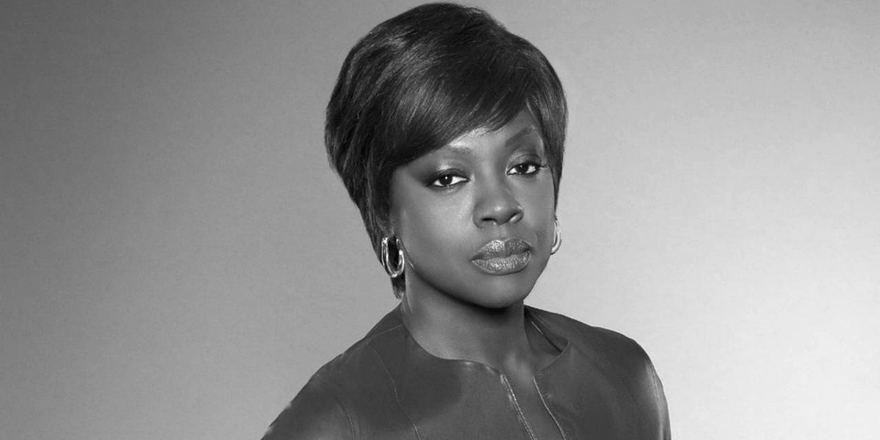Last Sunday, Viola Davis won the Emmy for Best Actress in a Drama Series, and was the first African-American to achieve the honor. She accepted her award in classic Viola Davis fashion - with humility and gratefulness. She looked flawless in her leaf-printed dress and red lipstick. Surprisingly, though, that was all beside the point because Ms. Davis’ acceptance speech immediately became the most memorable moment of the evening. In a moment that was justifiably all hers, she extended her victory to so many women like her with the following words:
“In my mind, I see a line. And over that line, I see green fields and lovely flowers and beautiful white women with their arms stretched out to me, over that line. But I can’t seem to get there no how. I can’t seem to get over that line.”
‘That was Harriet Tubman in the 1800s. And let me tell you something: The only thing that separates women of color from anyone else is opportunity.
You cannot win an Emmy for roles that are simply not there. So here’s to all the writers, the awesome people that are Ben Sherwood, Paul Lee, Peter Nowalk, Shonda Rhimes, people who have redefined what it means to be beautiful, to be sexy, to be a leading woman, to be black.
And to the Taraji P. Hensons, the Kerry Washingtons, the Halle Berrys, the Nicole Beharies, the Meagan Goods, to Gabrielle Union: Thank you for taking us over that line. Thank you to the Television Academy. Thank you.’ (Nytimes.com, ‘Viola Davis’s Emmy Speech)

Emmy winner Viola Davis
Viola Davis boldly addressed a problem that has long been fought against and long ignored. The lack of racial diversity in the television industry has come to be almost a trope in discussions about fairness in Hollywood. There aren’t enough roles being made available for women and actors of color. According to the University of California, Los Angeles’s 2015 Bunche Center Diversity Report, the proportion of Caucasian actors and actresses to their minority counterparts sits at 2 to 1 for film leads, 6 to 1 for scripted broadcast leads, and 2 to 1 among cable scripted leads.
This is even worse news when one considers the data covering the proportion of male leads to female leads is not favorable, either. This means that actresses of color are really suffering when it comes to getting substantial roles, a fact that Ms. Davis refused to ignore.
This is not to say that Ms. Davis has not led a successful career as an actress. The truth is quite the opposite, actually. She picked up a Tony Award and Drama Desk Awards in 2001 and 2004 for her roles in King Hedley II and Intimate Apparel. In 2008, she received a slew of nominations, which included Golden Globe and Academy Award nominations, for her powerful portrayal of Mrs. Miller in the film Doubt. 2009 brought her an induction into The Academy of Motion Picture Arts and Sciences, and 2010 brought her her second Tony Award, which she won for her portrayal of Rose Maxson in August Wilson’s Fences.
Ms. Davis’s success didn’t stop there, though. 2011 was also a very successful year as her portrayal of Aibileen Clark in The Help, the role for which she is perhaps most widely known for, brought her not only Golden Globe, BAFTA, and Academy Award nominations but also two Screen Actors Guild Awards. Throughout those years, her points of success were also interspersed with several credits including roles in Law and Order and Solaris. Suffice it say, Ms. Davis has enjoyed quite a bit of success.
![]()
You cannot win an Emmy for roles that are simply not there. - Viola Davis
![]()
This does not erase the diversity problem she and so many of her peers face. Yes, she’s been able to make the best of the opportunities she’s received and turn several of them into brilliant points of success. However, that doesn’t erase that actresses of color are in contention for a far smaller number of roles than their Caucasian peers, simply because there is a dearth of roles for women and an even more severe dearth of roles for women of color.
Unfortunately, not everyone seems to understand this. Ms. Davis had hardly warmed her hands to her award before the Internet was abuzz over the comments made by Nancy Lee Grahn on Twitter. ‘Im a ******* actress for 40 yrs. None of us get respect or opportunity we deserve. Emmys not venue 4 racial opportunity. ALL women belittled,’ she wrote (Nancy Lee Grahn @NancyLeeGrahn, September 21, 2015). The statements from Ms. Grahn came off as rather tone deaf, considering the obvious lack of roles for actors and actresses of color. She seemed to ignore that actresses do find themselves trailing behind their male peers in terms of availability of roles and actresses of color find themselves trailing doubly far behind because work that is available to actresses is skewed towards Caucasian ones.
Reaching such lofty heights as Ms. Davis is harder for actresses of color simply because they don’t have as many opportunities, and this is what Ms. Davis was seeking to shed light on in her Emmy speech. She was mindful of the platform her success granted her, and she chose to take advantage of it to draw attention to that very relevant issue. She owned her success in that moment and extended a hand to hopefully make it easier for other women to follow in her footsteps. As she once said, ‘You cannot live to please everyone else. You have to edify, educate and fulfill your own dreams and destiny.’ Well it’s safe to say she certainly has.
I’m currently a student in the Performance Studies major at Northwestern University. I spend a good amount of time writing short stories and plays. Learn more about me by visiting my blog Stylyistic Fuzzy.
Comments (0)